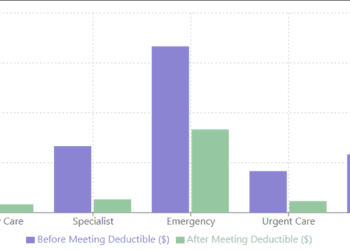In today’s rapidly evolving healthcare landscape, a groundbreaking approach is gaining momentum—personalized medicine. As technology advances, we are witnessing an unprecedented opportunity to tailor healthcare to the unique needs of each individual. By harnessing the power of genetic information, along with other essential factors, personalized medicine holds the promise of revolutionizing the way we treat and manage diseases. In this blog post, we will explore the transformative potential of personalized medicine and how it is empowering the creation of customized treatment plans.
Understanding Personalized Medicine
Personalized medicine, also known as precision medicine, is an innovative approach that takes into account an individual’s genetic makeup, lifestyle choices, and environmental factors to determine the most effective and personalized treatment options. It moves away from the traditional one-size-fits-all approach and recognizes that each person is unique, with their own distinct genetic variations and predispositions to diseases.
The foundation of personalized medicine lies in genomics—the study of an individual’s complete set of genes and their interactions. By analyzing a person’s genetic information, healthcare professionals can gain invaluable insights into their susceptibility to certain diseases, their response to specific medications, and potential treatment outcomes. This knowledge empowers healthcare providers to develop targeted interventions that maximize therapeutic benefits while minimizing adverse effects.

Powering the Future of Healthcare
Personalized medicine has the potential to transform healthcare in remarkable ways. Let’s take a closer look at how it is revolutionizing various aspects of medical practice:
1. Preventive Care and Early Detection
The integration of personalized medicine into preventive care is a game-changer. Through genetic testing and comprehensive risk assessments, individuals can proactively identify their predisposition to certain diseases. Armed with this knowledge, they can make informed lifestyle choices and undertake preventive measures to mitigate the risk of developing these conditions. Early detection of diseases is also significantly enhanced by personalized medicine, allowing for prompt intervention and improved patient outcomes.
2. Tailored Treatment Plans
Gone are the days of trial-and-error prescribing. Personalized medicine enables healthcare professionals to develop treatment plans tailored specifically to an individual’s genetic profile. By identifying genetic markers that influence drug response, physicians can predict whether a particular medication will be effective or result in adverse reactions. This information allows for precise medication selection and dosage adjustments, optimizing therapeutic outcomes and minimizing potential side effects.
3. Advancements in Oncology
One area where personalized medicine has made significant strides is oncology. The genomic profiling of tumors has revolutionized cancer treatment by enabling targeted therapies. By analyzing the genetic mutations present in a tumor, oncologists can select therapies that specifically target those mutations, increasing treatment efficacy while minimizing harm to healthy cells. This approach, known as targeted therapy, has transformed the landscape of cancer treatment and improved patient survival rates.
4. Enhanced Patient Engagement
Personalized medicine encourages active participation from patients in their own healthcare journey. By providing individuals with a comprehensive understanding of their genetic makeup and disease risks, they can take ownership of their health and actively engage in shared decision-making with healthcare providers. This collaborative approach fosters a stronger patient-provider relationship, leading to improved treatment adherence and patient satisfaction.

The Challenges Ahead
While the potential of personalized medicine is undeniably exciting, it is important to acknowledge the challenges that lie ahead. Ensuring equitable access to genetic testing, maintaining patient privacy and confidentiality, and addressing ethical considerations are crucial factors that require careful attention. The responsible integration of personalized medicine into mainstream healthcare will necessitate collaboration among healthcare professionals, policymakers, and regulatory bodies.
Embracing a Personalized Future
As personalized medicine continues to gain momentum, it is essential for healthcare professionals and stakeholders to embrace its potential fully. By investing in research and technological advancements, we can unlock the full capabilities of personalized medicine and harness its benefits for the benefit of all. The future of healthcare is personalized, empowering individuals with tailored treatment plans that optimize outcomes and improve overall well-being.
Let’s embark on this transformative journey together and pave the way for a new era of healthcare where every individual’s unique needs are met with precision and compassion.
“Personalized medicine is not just a treatment option; it represents a shift in the entire paradigm of healthcare, placing individuals at the center of their own well-being.”
Internal Link:
References:















































